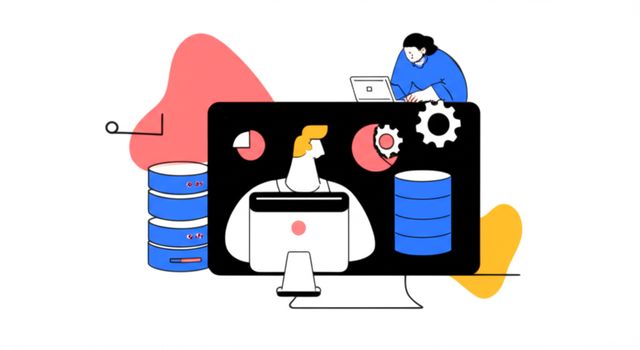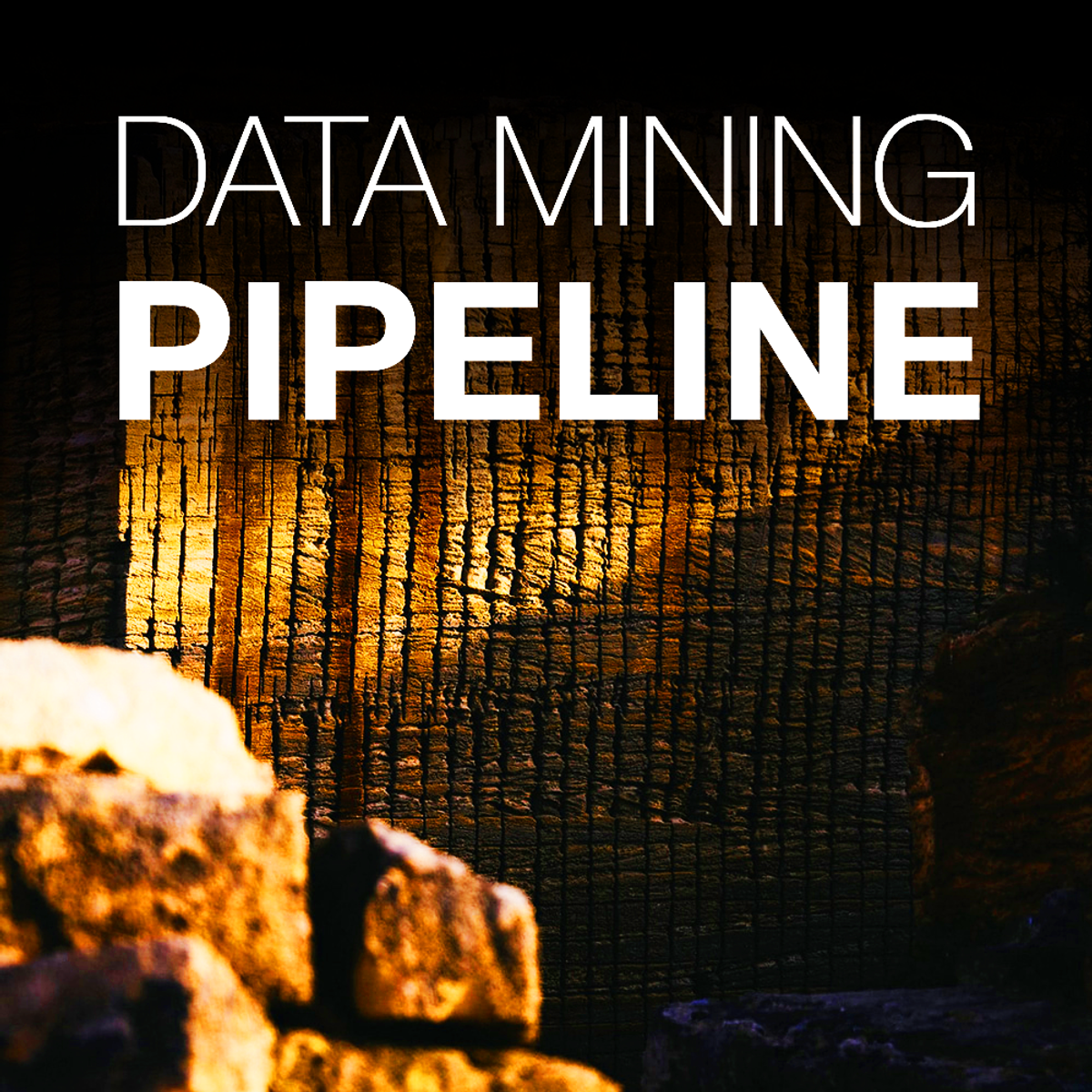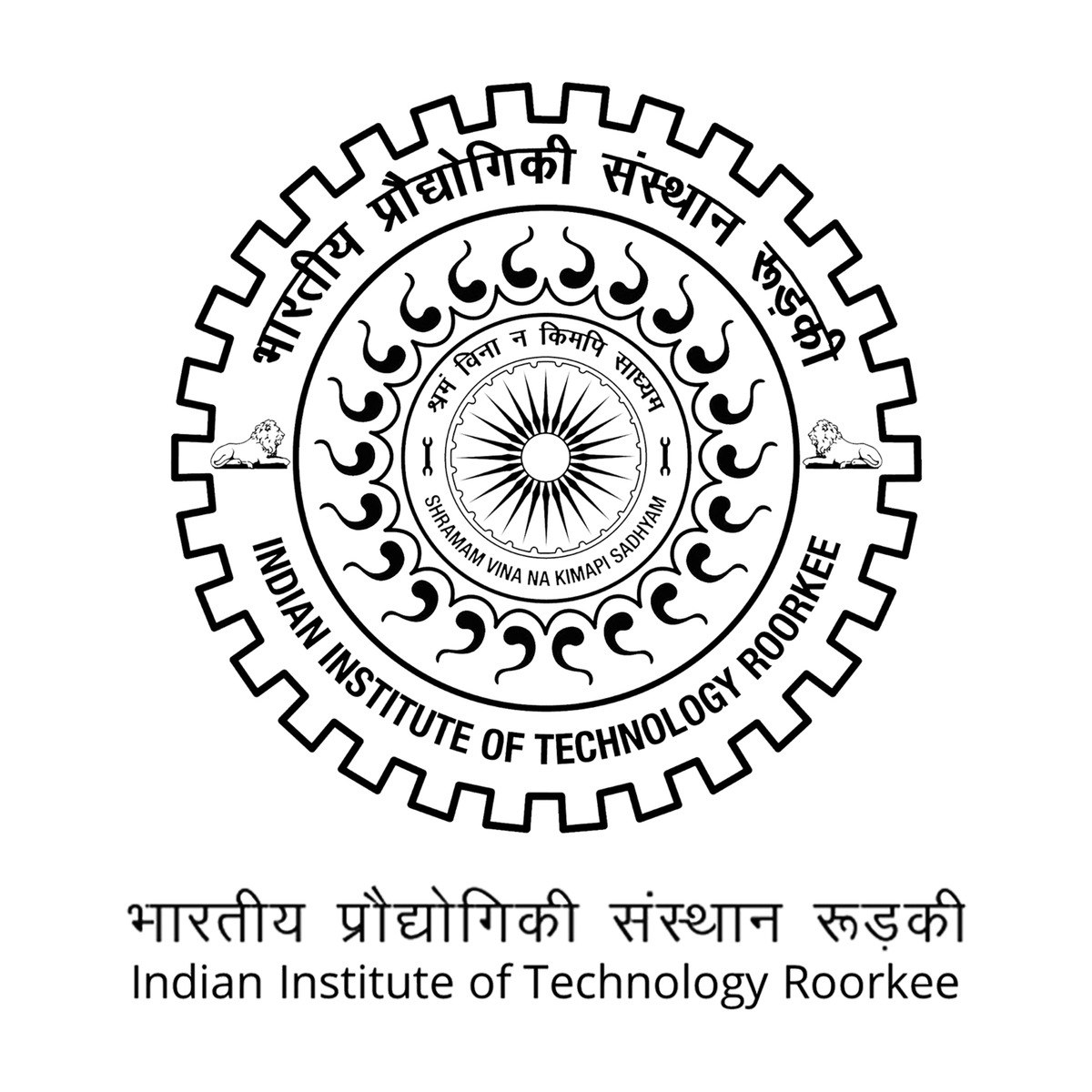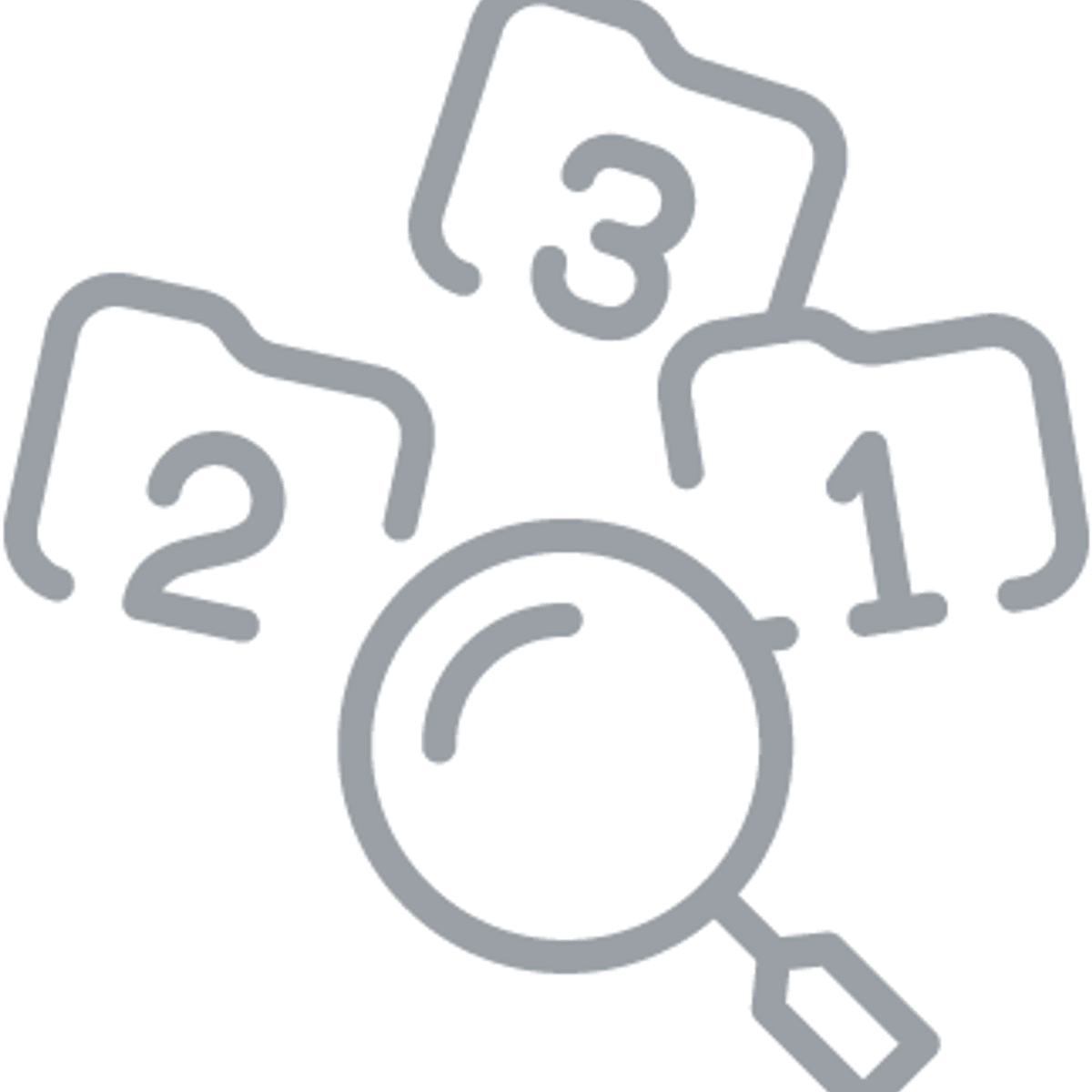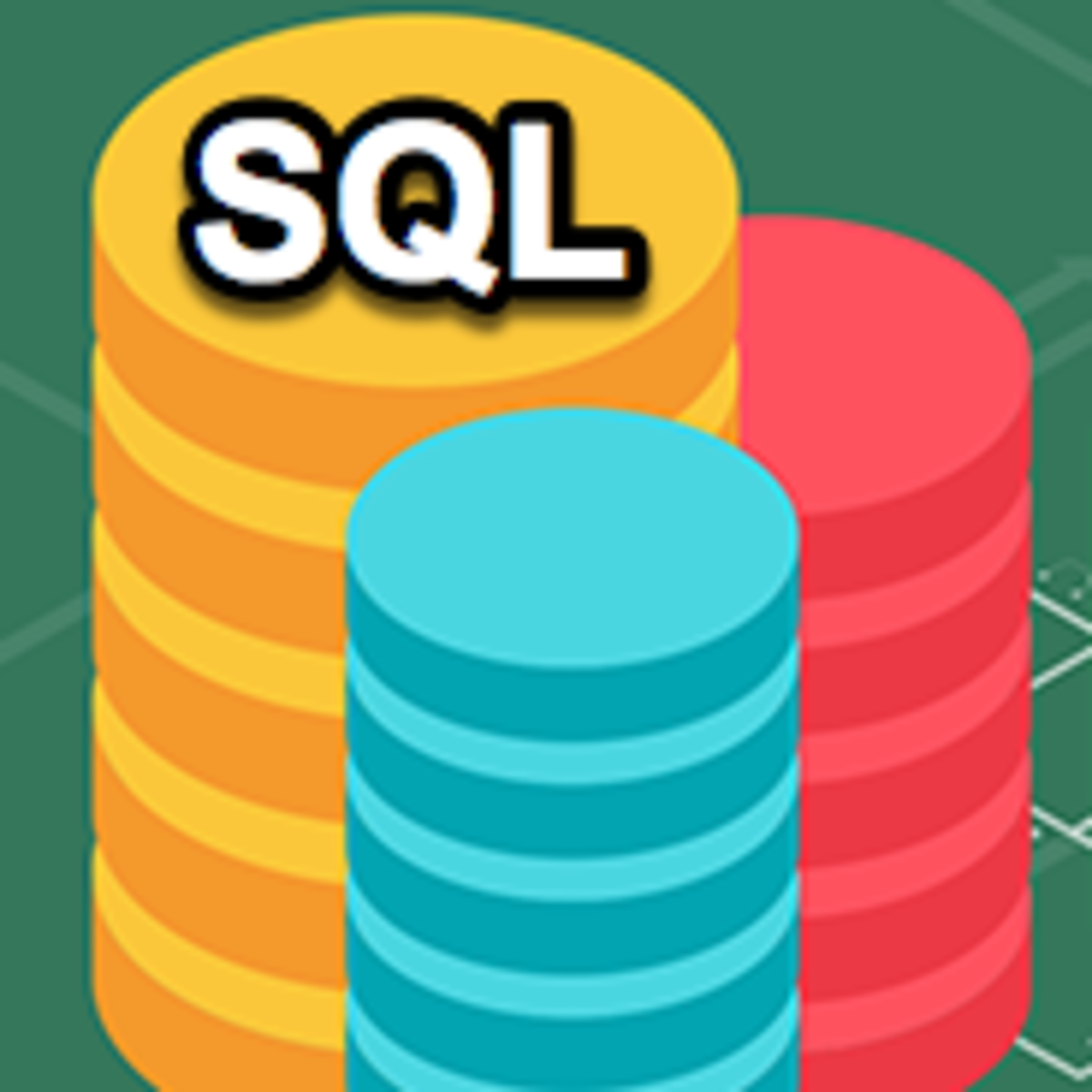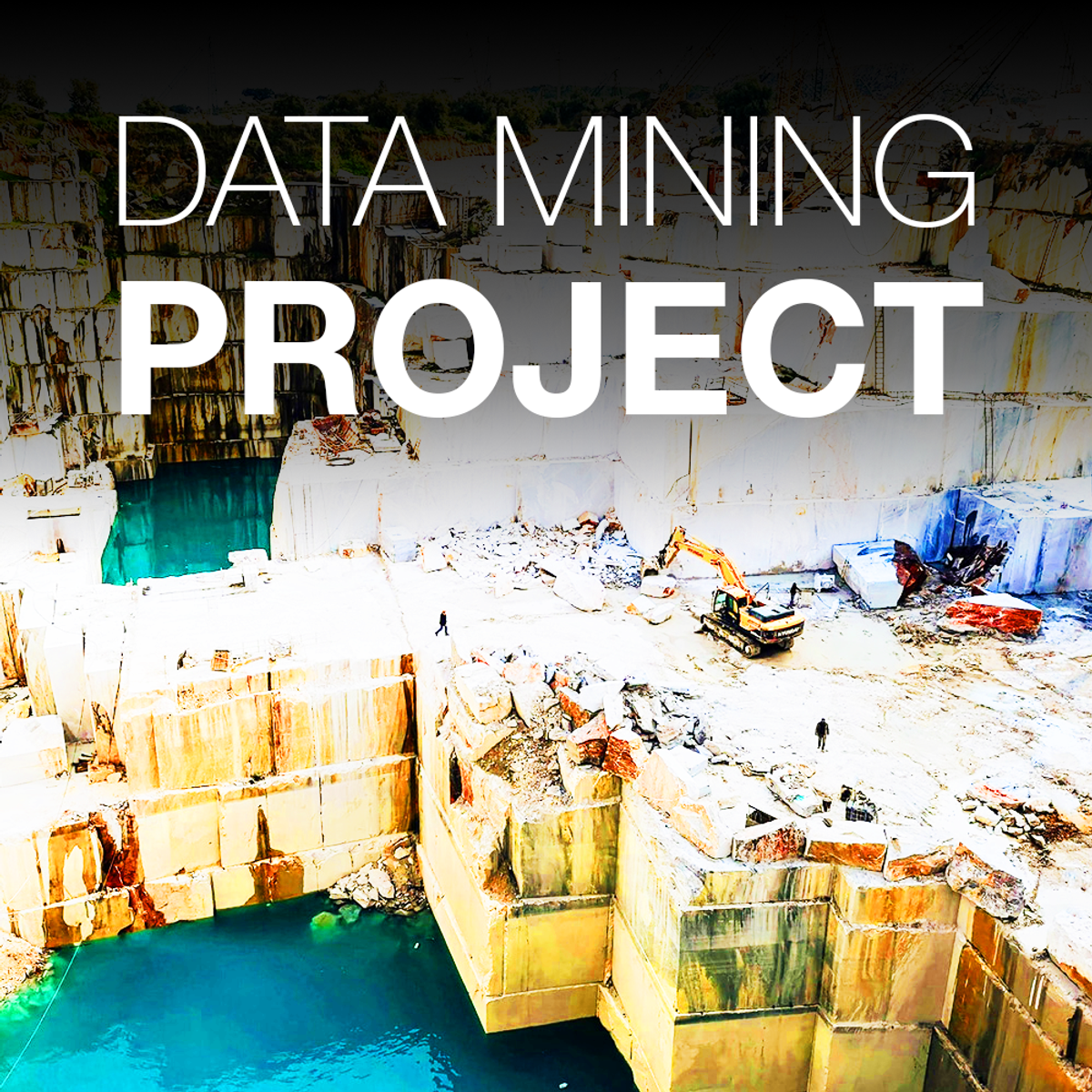Data Mining Analyst
The World of the Data Mining Analyst: Uncovering Insights from Data
A Data Mining Analyst is a professional who delves into vast quantities of raw data to discover meaningful patterns, trends, and insights that can inform critical business decisions. They act as detectives of the digital age, sifting through complex datasets to extract valuable information that might otherwise remain hidden. This role is crucial for organizations looking to leverage their data to improve efficiency, understand customer behavior, identify new market opportunities, and gain a competitive edge.
Working as a Data Mining Analyst can be an engaging and exciting career. You'll constantly be challenged to solve complex puzzles, using a blend of technical skills and analytical thinking to transform data into actionable intelligence. The thrill of uncovering a previously unknown pattern that leads to a significant business improvement or a new product innovation can be incredibly rewarding. Furthermore, the field is continuously evolving with new technologies and techniques, ensuring that the learning never stops.
For those new to the field, data mining involves the process of exploring and analyzing large blocks of information to glean meaningful patterns and trends. It sits at the intersection of statistics, computer science, and business intelligence, offering a dynamic and intellectually stimulating career path.
Introduction to Data Mining Analysis
This section will provide a foundational understanding of what data mining analysis entails, its historical context, its relationship with other data-focused disciplines, and the diverse industries that rely on these professionals.
Defining the Data Mining Analyst: From Raw Data to Actionable Knowledge
A Data Mining Analyst is fundamentally responsible for collecting, cleaning, processing, and analyzing large and complex datasets. Their core objective is to identify significant patterns, correlations, and trends that can be translated into actionable strategies for an organization. This involves not just technical prowess in handling data but also a keen understanding of business objectives to ensure that the insights derived are relevant and impactful. They essentially bridge the gap between raw data and informed decision-making, helping businesses to optimize operations, understand customer preferences, and mitigate risks.
These professionals use a variety of statistical methods and software tools to perform their analyses. The outcome of their work often takes the form of reports, visualizations, and predictive models that help stakeholders understand complex data and its implications. The role requires a blend of analytical rigor, technical skill, and effective communication to convey findings to both technical and non-technical audiences.
Ultimately, a Data Mining Analyst empowers organizations to make fact-based decisions by transforming data into a strategic asset. They play a critical role in helping businesses navigate an increasingly data-driven world. For those interested in the foundational steps of data mining, understanding the entire pipeline is crucial.
To gain an introductory overview of analytic thinking and data science, which are closely related to data mining, the following course can be beneficial.
A Brief History: The Evolution of Unearthing Data's Secrets
While the practice of analyzing data to make informed decisions has existed for centuries, the term "data mining" gained prominence in the 1990s. This emergence was fueled by advancements in data storage capabilities, allowing organizations to accumulate vast amounts of information. Concurrently, progress in fields like statistics, artificial intelligence, and machine learning provided the tools and techniques necessary to analyze these massive datasets effectively.
Early forms of data analysis were often manual and time-consuming. However, the development of more sophisticated algorithms and increased computing power automated many of these processes. This allowed analysts to explore data with greater depth and speed, uncovering more complex patterns and relationships than previously possible. The evolution continues today, with data mining becoming an increasingly integral part of business operations across numerous sectors.
The journey of data mining reflects the broader technological advancements of the late 20th and early 21st centuries. From its roots in statistical analysis and database management, it has grown into a distinct field that continues to be shaped by innovation. Understanding this historical context provides appreciation for the current state and future potential of data mining.
For those interested in the broader concepts and techniques that form the bedrock of data mining, these books offer comprehensive insights.
The Data Ecosystem: Connections to Data Science and Business Intelligence
Data Mining Analysis does not exist in a vacuum; it is part of a larger ecosystem of data-related disciplines. It shares significant overlap with fields like Data Science and Business Intelligence (BI), though there are distinctions. Data Science is a broader, multidisciplinary field that encompasses data mining, machine learning, statistics, and other analytical methods to extract knowledge and insights from data in various forms, both structured and unstructured. A Data Mining Analyst can be considered a specialized role within the broader Data Science landscape.
Business Intelligence, on the other hand, traditionally focuses more on using data to understand past and current business performance, often through dashboards and reports that track key metrics. While data mining can be a component of BI, providing deeper analytical capabilities, BI itself often emphasizes reporting and descriptive analytics. Data Mining Analysts often contribute to BI efforts by providing the underlying analysis that powers these reports or by uncovering trends that BI tools can then monitor.
Understanding these relationships is crucial for aspiring Data Mining Analysts. Many of the skills and tools are transferable across these domains. Often, professionals may find their roles blending aspects of data mining, data analysis, and data science, particularly in smaller organizations. The key is the focus on extracting new, non-obvious, and actionable insights from data. For individuals looking to understand the BI landscape, there are dedicated learning resources.
The following books delve deeper into the application of data mining in business contexts, including business intelligence and analytics.
Where Data Mining Thrives: Key Industries and Applications
Data Mining Analysts are in demand across a wide array of industries, as organizations in virtually every sector recognize the value of data-driven decision-making. The financial services industry, including banking and insurance, heavily utilizes data mining for risk assessment, fraud detection, customer relationship management (CRM), and predicting market trends. Retail and e-commerce companies employ data mining to understand customer purchasing patterns, optimize supply chains, personalize marketing campaigns, and for product recommendation engines.
Healthcare is another significant sector, where data mining helps in areas like predicting disease outbreaks, improving patient outcomes, managing resources efficiently, and detecting fraudulent claims. Telecommunications companies use data mining to analyze customer churn, optimize network performance, and develop targeted marketing. Furthermore, manufacturing, government, entertainment, and even education are increasingly leveraging data mining techniques to enhance their operations and services.
The applications are diverse, ranging from identifying opportunities to improve sales and reduce inefficiencies to enhancing security and making scientific discoveries. As the volume of data generated continues to explode, the need for skilled professionals who can extract valuable insights will only grow across these and other emerging sectors. Exploring Data Science courses on OpenCourser can provide a broad overview of techniques applicable across many of these industries.
Specific courses can provide insights into how data mining is applied in particular contexts, such as in smart cities or for analyzing clinical databases.
For a broader understanding of how data mining is utilized across various applications, these resources are helpful.
Core Responsibilities of a Data Mining Analyst
Understanding the day-to-day tasks and overarching responsibilities of a Data Mining Analyst is key for anyone considering this career. This section outlines the typical workflows, from initial data handling to the final communication of insights.
The Groundwork: Data Collection and Preprocessing
A significant portion of a Data Mining Analyst's time is dedicated to data collection and preprocessing. This foundational stage involves gathering data from various sources, which could include databases, spreadsheets, web anaytics, APIs, or even unstructured text. Once collected, the data often requires meticulous cleaning to handle missing values, correct errors, remove duplicates, and address inconsistencies to ensure its integrity and usability.
Preprocessing also involves transforming raw data into a format suitable for analysis. This might include normalization, scaling, feature engineering (creating new relevant variables from existing ones), and data reduction. The quality of the data directly impacts the reliability of the mining results, making this stage critically important. Without careful attention to data preparation, even the most sophisticated analysis techniques can yield misleading or inaccurate conclusions.
Data Mining Analysts must be adept at identifying potential issues with data quality and applying appropriate techniques to rectify them. This often requires a combination of technical skills, domain knowledge, and critical thinking. Mastering data preparation is essential for any aspiring analyst.
To learn how to prepare data for exploration and understand data transformation, these courses offer practical skills.
A book focusing on data preprocessing can provide in-depth knowledge on this crucial step.
Unveiling Trends: Pattern Discovery and Predictive Modeling
Once data is prepared, the Data Mining Analyst moves to the core task of discovering patterns and building predictive models. This involves applying various data mining techniques, which can range from statistical analysis and clustering to machine learning algorithms like decision trees, regression analysis, and neural networks. The goal is to identify meaningful relationships, anomalies, and trends within the data that can provide insights or predict future outcomes.
Pattern discovery might involve finding associations (e.g., customers who buy product A also tend to buy product B) or segmenting customers into distinct groups based on their behavior. Predictive modeling focuses on developing models that can forecast future events, such as predicting which customers are likely to churn, which transactions might be fraudulent, or what sales figures will look like next quarter. The analyst must choose the appropriate techniques based on the problem at hand and the nature of the data.
This phase requires a strong understanding of statistical concepts and machine learning principles. It's an iterative process involving model building, testing, and refinement to ensure the insights are accurate and reliable. The ability to critically evaluate model performance is also a key skill.
These courses provide a good starting point for understanding pattern discovery and the methods involved.
For those looking to delve deeper into the theoretical and algorithmic aspects, this book is a valuable resource.
Bridging Gaps: Collaboration Across Departments
Data Mining Analysts rarely work in isolation. Effective collaboration with various stakeholders across different departments is crucial for success. They often work closely with business teams to understand their objectives, challenges, and data needs. This ensures that the analytical work is aligned with business goals and that the insights generated are relevant and actionable.
Collaboration may also involve working with IT and data engineering teams to access data, optimize data pipelines, and ensure data quality. They might interact with marketing teams to analyze campaign effectiveness, sales teams to understand customer behavior, or product teams to inform feature development. Strong communication and interpersonal skills are therefore essential for translating business requirements into analytical problems and for explaining complex findings in an understandable way to non-technical audiences.
Building relationships and fostering a shared understanding of how data can drive value is a key aspect of the role. A Data Mining Analyst acts as a conduit between the data and the decision-makers, helping to embed data-driven practices throughout the organization.
Communicating Discoveries: Reporting and Visualization
The final, yet critical, responsibility of a Data Mining Analyst is to effectively communicate their findings to stakeholders. This involves translating complex analytical results into clear, concise, and compelling reports, presentations, and visualizations. Tools like Tableau or Power BI are often used to create dashboards and visual representations of data that make it easier for decision-makers to grasp key insights and trends at a glance.
The ability to tell a story with data is paramount. Analysts must not only present what the data says but also explain its implications for the business and provide actionable recommendations. This requires strong presentation skills and the ability to tailor communication to different audiences, whether they are technical peers or business executives.
Documentation of processes and methodologies is also important to ensure reproducibility and knowledge sharing within the team or organization. Ultimately, the value of data mining work is realized when its insights are understood and acted upon, making effective communication an indispensable skill.
This course focuses on the skills needed to analyze and present data effectively, which are crucial for any Data Mining Analyst.
Developing expertise in data visualization is key for conveying insights. For those interested in exploring visualization tools, OpenCourser offers a variety of resources accessible via search, such as for Tableau or Power BI.
Essential Technical Skills for Data Mining Analysts
A successful career as a Data Mining Analyst hinges on a robust set of technical skills. This section details the programming languages, statistical knowledge, big data competencies, and machine learning capabilities that are fundamental to the role, while also touching upon how expectations might differ between entry-level and senior positions.
The Language of Data: Proficiency in Python, R, and SQL
Proficiency in certain programming languages is a cornerstone for Data Mining Analysts. SQL (Structured Query Language) is universally essential for interacting with relational databases, allowing analysts to extract, manipulate, and manage data. Strong SQL skills are often a primary requirement for data-related roles.
Beyond SQL, languages like Python and R are widely used for data analysis, statistical modeling, and machine learning. Python, with its extensive libraries such as Pandas, NumPy, Scikit-learn, and TensorFlow, has become particularly popular due to its versatility and ease of use. R is a powerful language specifically designed for statistical computing and graphics, offering a rich ecosystem of packages for data analysis. Familiarity with at least one of these statistical programming languages is typically expected. Entry-level roles might require foundational knowledge, while senior roles often demand advanced programming skills and the ability to build complex data pipelines and models.
Other languages like Java or Perl might also be beneficial depending on the specific industry and company. The ability to automate repetitive tasks and build scalable data mining solutions often relies on these programming skills.
For those looking to build their SQL skills specifically for data science applications, this course is a great starting point.
These books offer practical guidance on using R for data mining.
Building Models: Statistical Foundations and Techniques
A strong foundation in statistics is crucial for Data Mining Analysts. This includes understanding concepts like probability, hypothesis testing, regression analysis, and various statistical distributions. These concepts underpin many data mining techniques and are essential for interpreting data correctly and building robust analytical models.
Analysts use statistical methods to identify significant patterns, quantify uncertainty, and make inferences from data. Knowledge of different modeling techniques, such as linear and logistic regression, time series analysis, and clustering methods, is vital. They must be able to select appropriate statistical tests and models based on the data characteristics and the research question at hand. Furthermore, understanding the assumptions and limitations of these statistical techniques is critical to avoid misinterpretations and draw valid conclusions.
For entry-level positions, a solid grasp of fundamental statistical concepts is usually expected. Senior roles often require more advanced statistical knowledge, including experience with experimental design, Bayesian methods, or specialized modeling techniques relevant to their industry. Continuous learning in this area is important as new statistical approaches are constantly being developed.
This course covers generalized linear models and nonparametric regression, which are advanced statistical modeling tools.
To deepen your understanding of statistical analysis and its application in data mining, consider these comprehensive books.
Handling Volume: Big Data Technologies
As organizations grapple with increasingly large and complex datasets, familiarity with big data technologies is becoming more important for Data Mining Analysts. This includes understanding concepts of distributed computing and experience with platforms like Apache Hadoop and Apache Spark. These technologies allow for the storage, processing, and analysis of massive datasets that exceed the capabilities of traditional database systems.
Knowledge of NoSQL databases (e.g., MongoDB, Cassandra) can also be beneficial, as they are often used to store diverse types of data. Cloud platforms such as Amazon Web Services (AWS), Microsoft Azure, and Google Cloud Platform (GCP) offer a suite of tools for big data analytics and machine learning, and experience with these platforms is increasingly sought after.
While deep expertise in architecting big data systems might be more aligned with Data Engineer roles, Data Mining Analysts, especially at a senior level, are often expected to work comfortably within these environments. They should understand how to leverage these platforms to perform analyses at scale. Entry-level analysts may start with smaller datasets but should aim to build familiarity with big data concepts as they progress in their careers. You can explore Cloud Computing courses on OpenCourser to learn more about these platforms.
This course provides an introduction to advanced big data systems.
[course] Advanced Big Data Systems | 高级大数据系统This book covers the intersection of big data, data mining, and machine learning.
Intelligent Systems: Implementing Machine Learning Algorithms
Machine learning is a core component of modern data mining, and Data Mining Analysts are expected to have a good understanding of various machine learning algorithms and their implementation. This includes supervised learning techniques (e.g., classification and regression), unsupervised learning techniques (e.g., clustering and dimensionality reduction), and potentially reinforcement learning concepts. Knowledge of libraries like Scikit-learn in Python or packages in R is essential for applying these algorithms.
Analysts need to be able to choose the appropriate algorithm for a given task, prepare data for modeling, train and tune models, and evaluate their performance. Understanding concepts like feature selection, model validation, and overfitting is critical. While Data Scientists might focus more on developing new algorithms, Data Mining Analysts typically focus on applying existing algorithms effectively to solve business problems.
Entry-level analysts should be familiar with fundamental machine learning concepts and have hands-on experience with common algorithms. Senior analysts are often expected to have deeper expertise in a wider range of techniques, including ensemble methods, deep learning (neural networks), or natural language processing (NLP), depending on their specialization. The field of Artificial Intelligence is rapidly evolving, so continuous learning is key.
These courses provide introductions to machine learning theory and practical application.
[course] 人工智慧:機器學習與理論基礎 (Artificial Intelligence - Learning & Theory)This book is a comprehensive guide to statistical and machine-learning data mining.
The Data Mining Analyst's Toolkit
Beyond foundational skills, Data Mining Analysts rely on a diverse ecosystem of tools to perform their work efficiently and effectively. This section explores the types of software and platforms commonly used, from open-source solutions to enterprise-grade systems.
Choosing Your Instruments: Open-Source vs. Enterprise Tools
Data Mining Analysts have a wide array of tools at their disposal, broadly categorized into open-source and enterprise (commercial) software. Open-source tools like R and Python, with their vast ecosystems of libraries (e.g., Pandas, NumPy, Scikit-learn for Python; dplyr, ggplot2 for R), are incredibly popular due to their flexibility, extensive community support, and cost-effectiveness. These tools offer powerful capabilities for data manipulation, statistical analysis, machine learning, and visualization.
Enterprise tools, such as SAS, SPSS, or proprietary platforms from vendors like IBM or Microsoft, often provide integrated environments with user-friendly interfaces, robust support, and features tailored for large-scale deployments and specific industry needs. The choice between open-source and enterprise tools often depends on factors like budget, the scale of data operations, existing IT infrastructure, specific analytical requirements, and team expertise. Many organizations use a hybrid approach, combining the strengths of both types of tools.
Familiarity with a range of tools can be advantageous for a Data Mining Analyst. Understanding the pros and cons of different options allows analysts to select the most appropriate tool for a given task or to adapt to the toolset preferred by their employer. For those looking to explore specific tools, OpenCourser's search functionality can help find relevant learning resources; for instance, you can search for SAS programming or SPSS courses.
For those interested in a specific open-source toolkit, this project-based course offers hands-on experience.
Mining in the Cloud: Leveraging Cloud-Based Platforms
Cloud computing platforms have revolutionized how data mining is performed, offering scalable resources, managed services, and powerful analytical tools. Major providers like Amazon Web Services (AWS), Microsoft Azure, and Google Cloud Platform (GCP) offer comprehensive suites for data storage, processing, machine learning, and visualization. These platforms allow Data Mining Analysts to work with massive datasets and complex models without the need for significant upfront investment in on-premises infrastructure.
Services like Amazon SageMaker, Azure Machine Learning, and Google AI Platform provide end-to-end environments for building, training, and deploying machine learning models. Cloud-based data warehouses (e.g., Amazon Redshift, Google BigQuery, Snowflake) enable efficient querying and analysis of large volumes of structured and semi-structured data. The elasticity of the cloud means resources can be scaled up or down based on demand, providing flexibility and cost-efficiency.
Familiarity with at least one major cloud platform is becoming an increasingly valuable asset for Data Mining Analysts. These platforms often integrate various tools and services, streamlining the data mining workflow from data ingestion to model deployment and monitoring. Understanding how to leverage cloud capabilities can significantly enhance an analyst's productivity and ability to tackle complex projects.
The Rise of Automation: AutoML and Its Impact
Automated Machine Learning (AutoML) tools are an emerging trend with a significant impact on the data mining landscape. AutoML platforms aim to automate the time-consuming and iterative tasks of machine learning model development, such as feature engineering, model selection, hyperparameter tuning, and even model deployment. This allows Data Mining Analysts and data scientists to build and deploy models more quickly and potentially with less manual effort.
Tools like Google AutoML, H2O.ai, DataRobot, and various open-source libraries are making advanced machine learning more accessible. While AutoML can accelerate the modeling process, it's not a complete replacement for human expertise. Analysts still need a strong understanding of data, machine learning concepts, and business problems to effectively use AutoML tools, interpret their results, and ensure responsible AI practices.
The rise of AutoML means that Data Mining Analysts may spend less time on routine modeling tasks and more time on problem definition, data understanding, results interpretation, and communicating insights. It can also empower analysts to experiment with a wider range of models and techniques. Staying abreast of AutoML developments is important for anyone in the field.
Ensuring Quality and Collaboration: Version Control and Team Systems
In any data-driven project, especially those involving code and model development, version control systems are essential. Tools like Git, often used in conjunction with platforms like GitHub or GitLab, allow analysts to track changes to their code, collaborate effectively with team members, and manage different versions of their projects. This is crucial for reproducibility, debugging, and maintaining a history of the analytical work.
Beyond version control for code, collaboration platforms and project management tools (e.g., Jira, Confluence, Asana, Microsoft Teams) play a vital role in team-based data mining projects. These tools help in organizing tasks, tracking progress, sharing documentation, and facilitating communication among team members, including data engineers, business stakeholders, and other analysts. This ensures that projects stay on track and that everyone involved has a clear understanding of objectives and responsibilities.
For Data Mining Analysts, proficiency in using these collaboration and version control tools is increasingly important, especially in larger teams or more complex projects. They contribute to better anized workflows, improved code quality, and more efficient teamwork.
Formal Education Pathways to Becoming a Data Mining Analyst
For individuals planning their academic journey towards a career as a Data Mining Analyst, understanding the relevant educational routes is essential. This section explores common undergraduate degrees, specialized postgraduate programs, research avenues, and the role of certifications.
Laying the Foundation: Relevant Undergraduate Degrees
A bachelor's degree is generally considered the minimum educational requirement for most entry-level Data Mining Analyst positions. Common and relevant fields of study include Computer Science, Statistics, Mathematics, Data Science, Information Systems, or Business Administration with a quantitative focus. These programs typically provide a solid grounding in analytical thinking, problem-solving, and quantitative methods.
A Computer Science degree often equips students with strong programming skills, database knowledge, and an understanding of algorithms, all of which are highly applicable to data mining. Statistics and Mathematics programs develop the critical statistical reasoning and modeling skills necessary to understand and interpret data. Emerging Data Science undergraduate programs are specifically designed to offer a blend of these skills. Even degrees in fields like Economics, Physics, or Engineering can be suitable if they include substantial coursework in quantitative analysis and programming.
Regardless of the specific major, aspiring analysts should aim to take courses in statistics, calculus, linear algebra, programming (especially Python or R), database management, and machine learning if available. Practical experience through internships or projects is also highly valuable. You can explore relevant degree programs and courses on OpenCourser by browsing categories like Computer Science, Mathematics, and Data Science.
Deepening Expertise: Specialized Master's Programs
While a bachelor's degree can open doors to entry-level positions, many Data Mining Analysts, particularly those aiming for more senior roles or specialized areas, pursue a master's degree. Specialized master's programs in Data Science, Business Analytics, Data Mining, Statistics, or Artificial Intelligence can provide deeper theoretical knowledge and advanced practical skills. According to some studies, a significant percentage of data science and predictive analytics professionals hold a master's degree.
These programs often offer advanced coursework in machine learning, big data technologies, statistical modeling, data visualization, and domain-specific applications of data mining. They may also include capstone projects or research components that allow students to apply their learning to real-world problems. A master's degree can enhance a candidate's competitiveness in the job market and potentially lead to higher starting salaries and more advanced responsibilities.
When choosing a master's program, it's important to consider the curriculum, faculty expertise, industry connections, and opportunities for practical experience. Some programs may cater more towards research, while others are focused on applied skills for industry roles. Evaluating your career goals can help in selecting the most suitable program.
Courses designed for graduate-level study or those that form part of specialization tracks can provide a taste of what a master's program might entail. For instance, completing a series of advanced courses in a specific area of data mining can be highly beneficial.
Pushing Frontiers: PhDs and Research Opportunities
For individuals passionate about advancing the field of data mining, developing novel algorithms, or tackling highly complex research problems, pursuing a Doctor of Philosophy (PhD) can be a rewarding path. PhD programs in areas like Computer Science, Statistics, Data Science, or Machine Learning offer opportunities to conduct cutting-edge research under the guidance of experienced faculty. This route is typically for those aspiring to careers in academia, research institutions, or advanced research and development roles in industry.
PhD research in data mining can cover a vast range of topics, including the development of more efficient and scalable algorithms, new techniques for handling specific types of data (e.g., streaming data, graph data, text data), fairness and ethics in algorithmic decision-making, and applications of data mining in novel domains. The skills developed during a PhD, such as critical thinking, independent research, and advanced problem-solving, are highly valued.
While a PhD is not a requirement for most Data Mining Analyst positions in industry, it can open doors to specialized leadership roles, particularly those focused on innovation and the creation of new data-driven products or services. It's a significant commitment requiring deep intellectual curiosity and perseverance.
Validating Skills: The Role of Certification Programs
In addition to formal degrees, certification programs can play a role in validating specific skills and knowledge relevant to Data Mining Analysts. Various organizations and software vendors offer certifications in areas like data science, machine learning, specific programming languages (e.g., Python, SQL), data visualization tools (e.g., Tableau, Power BI), or cloud platforms (e.g., AWS, Azure, GCP). These certifications can demonstrate a level of proficiency in a particular technology or methodology.
Certifications can be particularly useful for individuals looking to transition into the field from a different background, as they can help bridge skill gaps and showcase commitment to learning. They can also be valuable for existing professionals who want to stay updated with new technologies or specialize in a particular area. Some employers may view certifications favorably as evidence of practical skills.
However, it's generally agreed that while certifications can supplement a strong educational background and practical experience, they are usually not a substitute for them. The value of a certification often depends on its reputation, relevance to the job role, and the rigor of its requirements. When considering certifications, it's advisable to research those that are well-recognized in the industry and align with your career goals. OpenCourser features a wide array of courses that can help prepare for various certifications; for instance, its Learner's Guide offers tips on how to leverage online courses for professional development.
Alternative Routes and Self-Paced Learning for Aspiring Data Mining Analysts
The path to becoming a Data Mining Analyst isn't limited to traditional academic degrees. Many successful professionals have entered the field through alternative routes, leveraging self-paced learning, online courses, and practical project experience. This section explores these non-traditional pathways, offering encouragement and realistic advice for career switchers and self-starters.
Pivoting Your Career: Transitioning from Related Technical Fields
Individuals working in related technical roles often possess a strong foundation of transferable skills that can facilitate a pivot into Data Mining Analysis. For example, software engineers typically have strong programming and problem-solving abilities. Database administrators possess in-depth knowledge of data management and SQL. Business analysts are skilled in understanding business problems and translating them into requirements, which is crucial for effective data mining. Professionals in fields like quantitative finance, market research, or scientific research may also have relevant analytical and statistical skills.
To make a successful transition, these professionals should identify any skill gaps—perhaps in specific machine learning techniques, advanced statistical modeling, or particular data mining tools—and proactively seek ways to fill them. This might involve taking targeted online courses, working on personal projects, or seeking opportunities to apply data mining techniques in their current roles. Highlighting relevant past experiences and demonstrating a clear understanding of data mining principles during job applications and interviews is key.
If you're considering a career change, remember that your existing expertise is valuable. The journey might require dedicated effort to acquire new skills, but it's a feasible and often rewarding path. OpenCourser provides a platform to browse courses across various disciplines, which can help identify relevant upskilling opportunities.
Many find success by building upon their existing technical expertise. Focusing on how current skills can be augmented with data mining capabilities is a practical approach.
Learning by Doing: The Power of Project-Based Approaches
For aspiring Data Mining Analysts, especially those taking non-traditional routes, project-based learning is an invaluable approach. Working on real-world or realistic data projects allows individuals to apply theoretical knowledge, develop practical skills, and build a tangible portfolio that showcases their abilities to potential employers. These projects can range from analyzing publicly available datasets to participating in online data science competitions or even developing solutions for local non-profits or small businesses.
The process of defining a problem, collecting and cleaning data, performing analysis, building models, and communicating results provides a comprehensive learning experience. It helps solidify understanding of the entire data mining pipeline and exposes learners to the challenges and nuances often encountered in professional settings. Documenting these projects thoroughly, including the methodologies used, code, and insights generated, is crucial for demonstrating competence.
Starting with smaller, manageable projects and gradually tackling more complex ones is a good strategy. There are numerous platforms and communities online that offer datasets and project ideas. The key is to be proactive, persistent, and to focus on creating work that demonstrates both technical skill and analytical thinking.
These project-focused courses can provide structured opportunities to gain hands-on experience.
Navigating Learning Options: Self-Study, Online Courses, and Bootcamps
The landscape of learning resources for aspiring Data Mining Analysts is vast and varied, catering to different learning styles, budgets, and time commitments. Self-study using books, academic papers, and free online tutorials can be a cost-effective way to learn, but it requires significant discipline and self-direction. Online courses, offered by universities and platforms like Coursera, edX, and Udacity, provide structured learning paths, often with a mix of video lectures, readings, assignments, and projects. OpenCourser is an excellent resource for finding and comparing such online courses from various providers.
Data science and analytics bootcamps offer intensive, immersive programs designed to equip individuals with job-ready skills in a relatively short period, typically a few months. These can be a good option for those seeking a fast-tracked, career-focused approach, though they often involve a significant time and financial investment. When choosing a bootcamp, it's important to research its curriculum, instructor quality, career services, and graduate outcomes.
Each option has its pros and cons. Self-study offers flexibility but lacks structure. Online courses offer structure and often affordability but may require strong self-motivation. Bootcamps offer intensity and career support but can be expensive. The best approach often involves a combination of these resources, tailored to individual needs and learning preferences. OpenCourser's extensive catalog can help you find data mining courses that fit your specific learning goals.
This course offers an introduction to the core techniques in data mining, suitable for self-paced learning.
For a comprehensive, yet accessible, guide for self-learners, consider this book.
Showcasing Your Abilities: Building a Compelling Portfolio
For Data Mining Analysts, particularly those entering the field or transitioning from other careers, a strong portfolio is often more impactful than a resume alone. A portfolio provides tangible evidence of your skills, problem-solving abilities, and passion for data. It should showcase a variety of projects that demonstrate your proficiency in different aspects of the data mining process, from data cleaning and exploration to modeling and visualization.
Include projects that are relevant to the types of roles or industries you are targeting. For each project, clearly articulate the problem statement, the data sources used, the methodologies applied, the tools utilized (e.g., Python, R, SQL, specific libraries), and the key findings or results. Sharing your code (e.g., via GitHub), along with well-commented scripts or notebooks, allows potential employers to assess your technical competence. Visualizations and clear explanations of your insights are also crucial.
Your portfolio can be a personal website, a GitHub repository, or a collection of project reports. Continuously update it with new projects and learnings. A well-crafted portfolio can significantly enhance your job prospects by making your skills concrete and demonstrating your ability to deliver value through data.
Career Progression and Growth for Data Mining Analysts
A career as a Data Mining Analyst offers significant opportunities for growth and advancement. Understanding the typical trajectory, specialization options, and leadership paths can help aspiring and current analysts plan their careers effectively. The job outlook for data professionals, including those with data mining skills, is generally strong, with the U.S. Bureau of Labor Statistics projecting significant growth in data science and related occupations.
Starting Your Journey: Typical Entry-Level Roles
Individuals typically enter the data mining field in roles such as Junior Data Analyst, Data Analyst, or sometimes as an Associate Data Mining Analyst. In these entry-level positions, responsibilities often focus on supporting senior analysts, performing data extraction and cleaning, conducting exploratory data analysis, generating reports, and assisting with the development and testing of simpler models. This initial phase is crucial for honing technical skills, gaining practical experience with real-world data, and understanding business processes.
Employers usually look for candidates with a relevant bachelor's degree in fields like computer science, statistics, mathematics, or data science, coupled with foundational knowledge of SQL, a programming language like Python or R, and basic statistical concepts. Internships or significant academic projects involving data analysis can be highly beneficial for securing an entry-level role. The median salary for entry-level data analysts can vary but provides a solid starting point in a growing field.
The focus during the early years is on building a strong technical foundation, learning from experienced colleagues, and demonstrating an ability to contribute to data-driven projects. This period sets the stage for future specialization and advancement. Exploring career development resources on OpenCourser can provide additional guidance for those starting out.
Honing Your Craft: Mid-Career Specializations
As Data Mining Analysts gain experience (typically 3-6+ years), they often have opportunities to specialize in particular areas based on their interests and the needs of their organization or industry. Mid-career roles might include titles like Data Mining Analyst, Senior Data Analyst, or more specialized titles reflecting their focus. Salaries tend to increase with experience and specialization.
Specializations can be industry-focused, such as healthcare analytics, financial risk modeling, retail analytics, or marketing analytics. Alternatively, analysts might specialize in particular techniques or technologies, such as machine learning, natural language processing, big data analytics, or data visualization. This could involve becoming an expert in specific algorithms, tools, or platforms. Some may choose to deepen their expertise in areas like predictive modeling for fraud detection or customer churn prediction.
Mid-career professionals are expected to handle more complex projects independently, mentor junior analysts, and contribute to strategic decision-making. Continuous learning is vital at this stage to keep up with evolving technologies and methodologies. Pursuing advanced certifications or even a master's degree can support further specialization and career growth.
This course focuses on specialized techniques within data mining, such as cluster analysis, which could be an area of mid-career specialization.
Leading the Way: Technical Expertise vs. Management Paths
With significant experience, Data Mining Analysts can progress into leadership roles. These pathways can diverge into either a technical leadership track or a management track. Those on the technical track might become Principal Data Mining Analysts, Lead Data Scientists, or Architects, focusing on solving the most challenging technical problems, developing innovative methodologies, and providing expert guidance on complex projects. They remain deeply involved in hands-on analytical work.
Alternatively, analysts with strong interpersonal and leadership skills may move into management roles such as Data Analytics Manager, Head of Data Mining, or even Director of Analytics. In these positions, the focus shifts towards leading teams, managing projects, setting strategic direction for data initiatives, liaising with senior executives, and developing talent within the analytics department. While they may do less hands-on analysis, a strong technical background remains essential for effective leadership in this domain.
Both paths offer significant opportunities for career advancement and increased responsibility. The choice often depends on individual strengths, preferences, and career aspirations. Some organizations may also offer hybrid roles that combine elements of both technical leadership and people management.
Advancing in Specific Sectors: Industry-Specific Trajectories
Career progression for Data Mining Analysts can also vary significantly depending on the industry. Different sectors have unique data challenges, regulatory environments, and business priorities, which shape the types of roles and advancement opportunities available. For example, in the finance industry, an analyst might specialize in algorithmic trading or credit risk modeling and progress to roles like Quantitative Analyst or Head of Financial Analytics.
In healthcare, an analyst could focus on clinical trial analysis, epidemiological modeling, or healthcare informatics, potentially advancing to roles like Director of Health Analytics or Chief Medical Information Officer. In retail, an analyst specializing in customer analytics or supply chain optimization might become a Senior Manager of Customer Insights or Director of Retail Analytics. The tech industry offers diverse paths in areas like search algorithms, recommendation systems, or product analytics, leading to roles like Staff Data Scientist or Product Analytics Lead.
Understanding the specific nuances and opportunities within a chosen industry is important for long-term career planning. Networking with professionals in that sector, gaining domain-specific knowledge, and tailoring skills to industry needs can facilitate advancement. The demand for data professionals is widespread, indicating strong prospects across various sectors.
This book specifically addresses data mining techniques in the context of Customer Relationship Management (CRM), relevant across many industries focused on customer data.
Navigating the Labyrinth: Ethical Challenges in Data Mining
The power of data mining to uncover hidden patterns and predict future behaviors comes with significant ethical responsibilities. Data Mining Analysts must be acutely aware of these challenges and strive to use data in a fair, transparent, and accountable manner. This section delves into some of the key ethical considerations in the field.
Unmasking Hidden Biases: Ensuring Fairness in Algorithms
One of the most critical ethical challenges in data mining is the potential for bias in data and algorithms. Historical data used to train models can reflect existing societal biases related to race, gender, age, or other protected characteristics. If not addressed, algorithms can perpetuate or even amplify these biases, leading to unfair or discriminatory outcomes in areas like loan applications, hiring processes, or criminal justice.
Data Mining Analysts have a responsibility to proactively identify and mitigate bias. This involves carefully examining data sources for potential biases, selecting appropriate fairness metrics, and employing techniques to build fairer models. It also requires an ongoing commitment to evaluating model outputs for disparate impacts on different demographic groups. Transparency in how models are built and the data they use is crucial for identifying and addressing these biases.
The pursuit of fairness in algorithms is an active area of research and development. Analysts should stay informed about best practices and emerging techniques for bias detection and mitigation to ensure their work promotes equitable outcomes. According to the American Statistical Association, the suitability and validity of methods used, including addressing bias, is a key ethical consideration.
Protecting Individuals: Techniques for Privacy Preservation
Data mining often involves analyzing large datasets that may contain sensitive personal information. Protecting the privacy of individuals whose data is being used is a paramount ethical and legal obligation. Breaches of privacy can lead to significant harm, including identity theft, discrimination, or reputational damage. Regulations like GDPR (General Data Protection Regulation) in Europe and CCPA (California Consumer Privacy Act) in the United States impose strict requirements for handling personal data.
Data Mining Analysts should be familiar with and implement privacy-preserving techniques. These can include data anonymization (removing or obscuring personally identifiable information), pseudonymization, differential privacy (adding noise to data to protect individual records while still allowing for aggregate analysis), and federated learning (training models on decentralized data without moving the data itself). Obtaining proper consent for data collection and use is also a fundamental aspect of privacy protection.
Ethical data mining requires a careful balance between extracting valuable insights and safeguarding individual privacy. Analysts must be diligent in applying appropriate privacy-enhancing technologies and adhering to legal and ethical guidelines concerning data confidentiality.
This book provides an overview of privacy-preserving data mining techniques.
Staying Within Bounds: Regulatory and Compliance Frameworks
Data Mining Analysts must operate within a complex web of legal and regulatory frameworks that govern data collection, use, and storage. These regulations vary by jurisdiction and industry but generally aim to protect consumer privacy, ensure data security, and prevent discriminatory practices. Examples include GDPR, CCPA, HIPAA (Health Insurance Portability and Accountability Act) in healthcare, and various financial regulations.
Understanding and adhering to these regulations is not just a legal requirement but also an ethical imperative. Analysts need to be aware of the specific laws that apply to the data they are working with and ensure their data mining practices are compliant. This includes aspects like data governance, data retention policies, security measures, and processes for handling data subject requests (e.g., requests for access or deletion of personal data).
Organizations often have compliance officers or legal teams to provide guidance, but analysts themselves should have a working knowledge of the relevant frameworks. Staying informed about changes in data privacy laws and industry standards is crucial, as the regulatory landscape is constantly evolving.
Learning from Mistakes: Case Studies in Ethical Lapses
Examining real-world case studies of ethical failures in data mining can provide valuable lessons for practitioners. There have been numerous instances where the misuse of data or biased algorithms has led to negative consequences, such as unfair targeting, discrimination, privacy violations, or erosion of public trust. Analyzing these cases helps to understand the potential pitfalls and reinforces the importance of ethical considerations in every stage of the data mining process.
These case studies can highlight issues like the unintentional perpetuation of bias through poorly designed algorithms, the risks associated with collecting excessive data, the consequences of inadequate data security, or the ethical dilemmas of using predictive analytics in sensitive areas like law enforcement or social services. Learning from these mistakes can inform the development of more robust ethical guidelines and best practices within organizations and the broader data science community.
By understanding how things can go wrong, Data Mining Analysts can be more vigilant in their own work, ask critical questions about the potential impact of their analyses, and advocate for responsible data use within their organizations. This reflective practice is essential for fostering a culture of ethical data mining.
The Evolving Landscape: Emerging Trends Shaping Data Mining
The field of data mining is dynamic, continuously reshaped by technological advancements and evolving business needs. Staying abreast of emerging trends is crucial for Data Mining Analysts to remain effective and relevant. This section explores some of the key developments predicted to influence the field in the coming years. Many experts, including those at Gartner, point towards AI and automation as major drivers of change.
The AI Revolution: Generative AI and Its Influence on Data Workflows
Generative AI, particularly large language models (LLMs), is poised to significantly influence data mining workflows. These AI models can assist in various tasks, from automating data cleaning and preparation to generating code for analysis, summarizing complex reports, and even creating synthetic data for training models while preserving privacy. The integration of generative AI could potentially free up analysts from more routine tasks, allowing them to focus on higher-level problem-solving and strategic thinking.
However, the use of generative AI also introduces new challenges, including concerns about the accuracy and reliability of AI-generated content, potential biases embedded in these models, and the need for careful validation of their outputs. Data Mining Analysts will need to learn how to effectively leverage these tools while critically evaluating their results and ensuring ethical considerations are addressed. According to insights from McKinsey, companies leveraging advanced data analytics, often incorporating AI, see significant improvements in customer acquisition and profitability. The ability to integrate AI tools thoughtfully will be a key skill.
The trend points towards a collaborative future where AI augments human capabilities rather than replacing them entirely in complex analytical roles. Analysts who can adapt and integrate these new AI tools into their workflows will likely be in high demand.
[course] 人工智慧:機器學習與理論基礎 (Artificial Intelligence - Learning & Theory)Data at the Source: The Rise of Edge Computing Analytics
Edge computing, which involves processing data closer to where it is generated rather than in a centralized cloud or data center, is an emerging trend with significant implications for data mining. As the Internet of Things (IoT) expands, generating massive volumes of data from sensors, wearable devices, and other connected endpoints, edge computing offers a way to perform real-time analysis and derive insights locally. This can reduce latency, save bandwidth, and enhance privacy by minimizing the amount of raw data transmitted to central servers.
For Data Mining Analysts, this trend means developing skills to work with distributed data sources and perform analytics in resource-constrained edge environments. It may involve deploying lightweight machine learning models on edge devices and developing new techniques for federated learning, where models are trained across multiple decentralized devices without exchanging raw data. Industries like manufacturing, healthcare, transportation, and smart cities are expected to increasingly adopt edge analytics.
The growth of edge computing will require analysts to think differently about data collection, processing, and model deployment, adapting their techniques to the unique challenges and opportunities presented by decentralized data architectures.
The Need for Speed: Real-Time Streaming Analytics
The demand for immediate insights is driving the adoption of real-time streaming analytics. Unlike traditional batch processing where data is collected and analyzed periodically, streaming analytics involves processing and analyzing data as it arrives, enabling organizations to react instantly to events, monitor operations in real-time, and make split-second decisions. This is crucial in applications like fraud detection, stock market trading, personalized recommendations, and monitoring critical infrastructure.
Data Mining Analysts working in this area need to be proficient with stream processing technologies (e.g., Apache Kafka, Apache Flink, Apache Storm) and techniques for analyzing data in motion. This includes developing models that can learn and adapt continuously as new data streams in. The ability to handle high-velocity, high-volume data and extract meaningful patterns on the fly is a key skill.
As more businesses strive for operational agility and immediate responsiveness, the importance of real-time streaming analytics will continue to grow, creating opportunities for analysts with expertise in this domain.
The Next Frontier?: Quantum Computing's Potential Impact
While still in its nascent stages, quantum computing holds the potential to revolutionize data mining and complex problem-solving in the long term. Quantum computers, by leveraging the principles of quantum mechanics, could perform certain types of calculations exponentially faster than classical computers. This could enable the analysis of vastly larger and more complex datasets, the optimization of intricate systems, and the development of more powerful machine learning algorithms.
For data mining, potential applications include breakthroughs in areas like drug discovery, materials science, financial modeling, and cryptography. While widespread commercial use of quantum computing for data mining is likely still some years away, its development is a trend to watch. Some forecasts suggest significant value creation from quantum computing by 2035.
Data Mining Analysts with an interest in this frontier may find opportunities in research and development as the technology matures. For most practitioners, the immediate impact will be limited, but awareness of its potential is valuable for understanding the long-term evolution of the analytical landscape.
Frequently Asked Questions about Data Mining Analysts
This section addresses some common questions that individuals exploring a career as a Data Mining Analyst might have, providing concise and realistic answers to help inform their decisions.
Is advanced mathematics a strict requirement for entry-level roles?
While a strong aptitude for quantitative reasoning is essential, advanced mathematics (such as high-level calculus, abstract algebra, or topology) is not always a strict prerequisite for every entry-level Data Mining Analyst role. A solid understanding of foundational concepts in statistics, linear algebra, and calculus, typically covered in undergraduate STEM programs, is generally sufficient to begin. Much of the applied work involves using software tools and libraries that handle the complex mathematical computations internally.
However, a deeper mathematical understanding becomes increasingly important for more advanced roles, for developing new algorithms, or for specializing in certain areas of machine learning. For entry-level positions, the ability to understand and apply statistical concepts correctly, interpret model outputs, and think critically about data is often valued as highly as pure mathematical prowess. Practical problem-solving skills and proficiency in programming languages like SQL and Python/R are also key.
If you are concerned about your math background, focus on strengthening your applied statistics and your ability to use data analysis tools effectively. Online courses can help bridge gaps in specific mathematical areas relevant to data mining. You can find many such courses on OpenCourser's mathematics section.
How does a Data Mining Analyst differ from a Data Scientist or Data Analyst?
The titles "Data Mining Analyst," "Data Scientist," and "Data Analyst" are often used interchangeably, and the specific responsibilities can vary significantly between organizations. However, some general distinctions can be made. A Data Analyst typically focuses on descriptive analytics, examining past data to create reports, dashboards, and identify trends. Their work often involves SQL, spreadsheet software, and data visualization tools to answer specific business questions.
A Data Mining Analyst, as discussed, specializes in discovering new, often hidden, patterns and insights from large datasets, frequently employing techniques like clustering, association rule mining, and predictive modeling. They bridge the gap between traditional data analysis and more advanced predictive tasks. The role shares significant overlap with data science.
A Data Scientist often has a broader skillset, encompassing everything a Data Mining Analyst does, but potentially with a deeper focus on advanced machine learning, algorithm development, statistical modeling, and often more extensive programming and big data skills. Data Scientists may also be more involved in formulating complex research questions and designing data-driven products. In essence, Data Mining can be considered a specialized area within the broader field of Data Science.
Which industries have the highest demand for Data Mining Analysts?
Data Mining Analysts are in demand across a multitude of industries. Some of the sectors with consistently high demand include finance and banking (for fraud detection, risk management, customer analytics), healthcare (for patient outcomes, operational efficiency, research), retail and e-commerce (for customer segmentation, recommendation engines, supply chain optimization), and technology companies (for product development, user behavior analysis).
Other significant employers include insurance companies, telecommunications providers, marketing and advertising agencies, consulting firms, and government agencies. Essentially, any industry that collects large amounts of data and seeks to gain a competitive advantage through data-driven insights is likely to hire professionals with data mining skills. The U.S. Bureau of Labor Statistics indicates strong overall growth for data science related roles, suggesting widespread opportunities.
The specific job titles and responsibilities may vary, but the underlying need for individuals who can turn raw data into actionable intelligence is pervasive. As data generation continues to accelerate, demand in these and other emerging sectors is expected to remain robust.
Are remote work opportunities common for Data Mining Analysts?
Remote work opportunities for Data Mining Analysts have become increasingly common, particularly following the broader shift towards remote and hybrid work models in many industries. The nature of data mining work, which is often computer-based and can be performed independently with the right tools and access to data, lends itself well to remote arrangements.
Many technology companies, consulting firms, and even organizations in more traditional sectors now offer remote or flexible positions for data professionals. Factors that influence the availability of remote work include company culture, the specific requirements of the role (e.g., need for frequent in-person collaboration or access to secure on-site data), and the individual's experience level. Entry-level roles might sometimes have a greater expectation for on-site presence for training and mentorship purposes, but this is not always the case.
Job seekers interested in remote work should find a good number of opportunities. It's advisable to check job postings carefully for location requirements and discuss remote work policies during the interview process. Platforms like OpenCourser often list courses that can be completed entirely online, aligning with the flexibility that many remote workers seek.
What are some common challenges faced during interviews for these roles?
Interviews for Data Mining Analyst positions often include a mix of technical assessments, problem-solving exercises, and behavioral questions. Common technical challenges include SQL querying tests, programming exercises (in Python or R), and questions on statistical concepts and machine learning algorithms. Candidates might be asked to walk through a data mining project they have completed, explaining their methodology and results.
Problem-solving questions often involve a case study or a business scenario where the candidate needs to outline how they would approach the problem using data. This tests analytical thinking, creativity, and the ability to translate business needs into data mining tasks. Communication skills are also heavily assessed, as analysts need to explain complex topics clearly to both technical and non-technical audiences.
Behavioral questions aim to assess soft skills like teamwork, problem-solving under pressure, adaptability, and curiosity. Preparing by practicing common technical questions, thoroughly understanding your own projects, and thinking about how your skills apply to the specific company and role is crucial for success.
How resilient is this career path against automation and AI advancements?
While automation and AI, including AutoML and generative AI, are certainly transforming aspects of a Data Mining Analyst's job, the career path is generally considered resilient. These technologies are more likely to augment the analyst's capabilities rather than replace them entirely, especially for roles requiring critical thinking, domain expertise, complex problem-solving, and effective communication of insights to stakeholders. AI can handle many routine and repetitive tasks, freeing up analysts to focus on more strategic and creative aspects of their work.
The demand for professionals who can understand business problems, formulate appropriate analytical questions, interpret complex model outputs, ensure ethical considerations are met, and translate findings into actionable business strategies remains high. In fact, as AI tools become more prevalent, the need for skilled individuals who can effectively use and manage these tools may even increase.
The key to long-term career resilience is continuous learning and adaptability. Data Mining Analysts who stay updated with new technologies, develop strong analytical and problem-solving skills, and cultivate domain expertise will be well-positioned to thrive in an evolving landscape. The U.S. Bureau of Labor Statistics projects continued strong growth for data science and related roles, indicating a positive outlook.
The journey to becoming a Data Mining Analyst is one of continuous learning and discovery. By building a strong foundation of technical skills, gaining practical experience, and staying curious, individuals can embark on a rewarding career path that plays a vital role in shaping the future of how organizations understand and utilize data. Whether you are just starting or looking to pivot, resources like OpenCourser can help you find the educational tools to navigate this exciting field.

